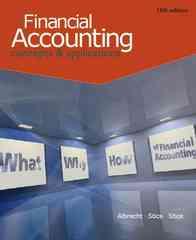Answered step by step
Verified Expert Solution
Question
1 Approved Answer
Sweeten Company had no jobs in progress at the beginning of March and no beginning inventories. It started only two jobs during MarchJob P and
Sweeten Company had no jobs in progress at the beginning of March and no beginning inventories. It started only two jobs during MarchJob P and Job Q. Job P was completed and sold by the end of the March and Job Q was incomplete at the end of the March. The company uses a plantwide predetermined overhead rate based on direct labor-hours. The following additional information is available for the company as a whole and for Jobs P and Q (all data and questions relate to the month of March): Estimated total fixed manufacturing overhead $ 13,200 Estimated variable manufacturing overhead per direct labor-hour $ 1.20 Estimated total direct labor-hours to be worked 3,300 Total actual manufacturing overhead costs incurred $ 17,000 Job P Job Q Direct materials $ 17,500 $ 9,300 Direct labor cost $ 43,200 $ 11,700 Actual direct labor-hours worked 2,400 650 1. What is the companys predetermined overhead rate? 2. How much manufacturing overhead was applied to Job P and Job Q? 3. What is the direct labor hourly wage rate? 4-a. If Job P includes 20 units, what is its unit product cost? 4-b. What is the total amount of manufacturing cost assigned to Job Q as of the end of March (including applied overhead)? 5. Assume the ending raw materials inventory is $2,300 and the company does not use any indirect materials. Prepare the journal entries to record raw materials purchases and the issuance of direct materials for use in production. (If no entry is required for a transaction/event, select "No journal entry required" in the first account field.) 6. Assume that the company does not use any indirect labor. Prepare the journal entry to record the direct labor costs added to production. (If no entry is required for a transaction/event, select "No journal entry required" in the first account field.) 7. Prepare the journal entry to apply manufacturing overhead costs to production. (If no entry is required for a transaction/event, select "No journal entry required" in the first account field.) 8. Assume the ending raw materials inventory is $2,300 and the company does not use any indirect materials. Prepare a schedule of cost of goods manufactured. 9. Prepare the journal entry to transfer costs from Work in Process to Finished Goods. (If no entry is required for a transaction/event, select "No journal entry required" in the first account field.) 10. Prepare a completed Work in Process T-account including the beginning and ending balances and all debits and credits posted to the account. 11. Prepare a schedule of cost of goods sold. 12. Prepare the journal entry to transfer costs from Finished Goods to Cost of Goods Sold. (If no entry is required for a transaction/event, select "No journal entry required" in the first account field.) 13. What is the amount of underapplied or overapplied overhead? 14. Prepare the journal entry to close the amount of underapplied or overapplied overhead to Cost of Goods Sold. (If no entry is required for a transaction/event, select "No journal entry required" in the first account field.) 15. Assume that Job P includes 20 units that each sell for $4,500 and that the companys selling and administrative expenses in March were $10,000. Prepare an absorption costing income statement for March
Step by Step Solution
There are 3 Steps involved in it
Step: 1

Get Instant Access to Expert-Tailored Solutions
See step-by-step solutions with expert insights and AI powered tools for academic success
Step: 2

Step: 3

Ace Your Homework with AI
Get the answers you need in no time with our AI-driven, step-by-step assistance
Get Started


